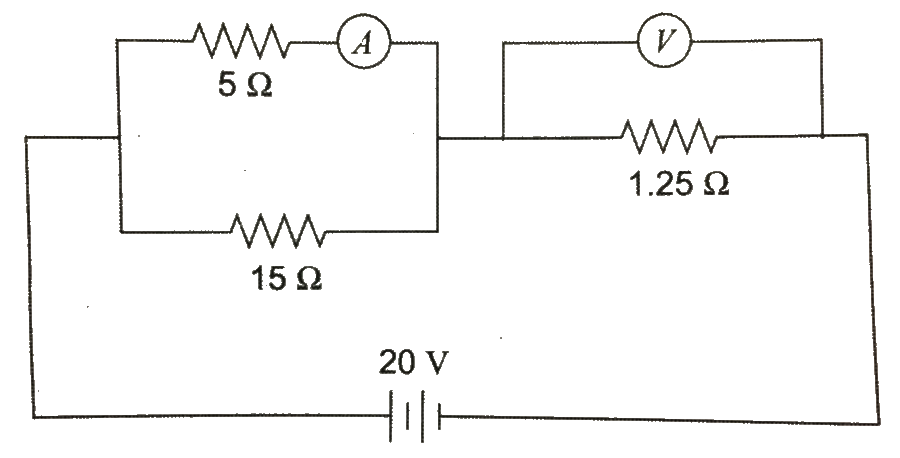The resistance of an ideal voltmeter is
A
zero
B
very low
C
very high
D
infinite
Text Solution
The correct Answer is:D
|
Similar Questions
Knowledge Check
Statement I: The resistance of an ideal voltmeter should be infinite.
Statement II: Lower resistance of voltmeters gives a reading lower than the actual potential difference across the terminals.AStatement 1 is true, Statement 2is True , Statement 2 is correct explanation for Statement 1.BStatement 1 is True, Statement 2 is True, Statement 2 is NOT a correct explantion for Statement 1.CStatement 1 is True, Statement 2 is False.DStatement 1 is False, Satement 2 is True.Assertion (A) : An ammeter is connected in series of the current carrying circuit but a voltmeter is connected in parallel across those two points, potential difference between which is to be measured.
Reason (R) : Resistance of an ideal ammeter is zero but the resistance of an ideal voltmeter is infinite.AIf both assertion and reason are true and the reason is the correct explanation of the assertion.BIf both assertion and reason are true but reason is not the correct explanation of the assertion.CIf assertion is true but reason is false .DIf the assertion is false but reason is true.Question Stimulus :-
The resistance of ideal voltmeter is-AZeroBVery lessCVery highDInfinite
Why should the resistance of an ideal voltmeter be infinite and of ideal ammeter be zero?
View SolutionStatement A : The resistance of ideal ammeter is zero
Statement B : The resistance of ideal voltmeter is infinity
Choose the correct option among the following.
View SolutionAn ideal ammeter (zero resistance) and an ideal voltmeter (infinite resistance) are connect as shows in Fig. 6.47. The ammeter and the voltmeter readings are

View SolutionWhat is the resistance of a voltmeter ?
View SolutionAn ideal ammeter (zero resistance) and an idel voltmeter (infinite resistance) are connect as shows in Fig. 6.47. The ammeter and the voltmeter readings are

View Solution
